Are you wrapping up a real estate service contract and wondering how to express your thoughts clearly? Ending a business relationship can be tricky, but with the right letter, you can ensure a professional farewell while keeping doors open for future opportunities. In this article, we'll explore a simple yet effective template to help you craft the perfect closing letter for your real estate engagement. Stick around to learn more about how to convey your appreciation and intentions with ease!

Parties Involved
In a real estate service contract, the parties involved typically include the following entities: the **Client**, often referred to as the buyer or seller of the property, seeking professional assistance in transactions; the **Real Estate Agent**, a licensed individual representing the client, responsible for coordinating the sale or purchase; the **Brokerage Firm**, a licensed business entity overseeing the agents and ensuring compliance with real estate laws; and any additional parties like **Co-Agents** or **Affiliated Service Providers**, such as mortgage lenders or inspection services, who may facilitate the transaction process. Clear identification of each party, including full names and relevant contact information, establishes accountability and communication channels throughout the contract's duration.
Contract Termination Date
In the realm of real estate transactions, termination of service agreements requires clarity and precision. Typically, a real estate service contract outlines a specific contract termination date, which signifies the official end of the agreement between parties, often codified in legal documents. This date, commonly referenced in section five of real estate contracts, may vary widely depending on the nature of services rendered - residential sales, commercial leasing, property management, or buyer representation. Upon reaching the termination date, any remaining obligations or commissions must be addressed to avoid potential disputes. Additionally, parties must ensure proper documentation of the termination notice to safeguard interests and confirm the cessation of services provided by the real estate professional.
Reason for Termination
Termination of a real estate service contract often occurs due to specific reasons, each reflecting a unique set of circumstances. Common causes include failure to meet contractual obligations, such as insufficient marketing efforts or inadequate communication, which can undermine trust and frustrate clients. Alternatively, a client may choose to terminate a contract if the agent's performance does not align with expectations, leading to dissatisfaction. Additionally, market changes, such as fluctuations in property value or shifts in demand, can result in decisions to end contracts early. In some cases, personal reasons may prompt the termination, such as relocation or financial constraints, ultimately influencing the client's ability to proceed with the contract.
Closing Obligations
Closing obligations in a real estate service contract involve the legal responsibilities and actions that both buyers and sellers must fulfill at the completion of a property transaction. These obligations typically include the transfer of title from the seller to the buyer, which necessitates the preparation of documents such as the deed, closing statement, and various disclosures required by state law. Payment, often involving large sums typically in the hundreds of thousands of dollars, must be processed through secure channels, such as escrow accounts. Additionally, both parties must ensure compliance with local regulations, such as inspections and repairs, which may have been stipulated in earlier negotiations. Finally, coordination with entities like title companies, lenders, and real estate agents is essential to facilitate a smooth closing process and to confirm that conditions outlined in the purchase agreement are met before the final transfer of ownership occurs.
Confirmation of Services Rendered
Upon completion of the real estate service contract, a confirmation of services rendered can provide clarity regarding the actions taken during the contractual period. The document can outline key activities such as property listings, market analysis, open houses, and client consultations conducted. It should specify the time frame of services (typically spanning several months), alongside any notable achievements like successful property sales or secured rental agreements. Clear identification of the parties involved, including the real estate agent's agency and the client's name, adds context. Additionally, including the address of the properties involved enhances specificity and ensures both parties acknowledge the completion of the agreed-upon services in a professional manner.

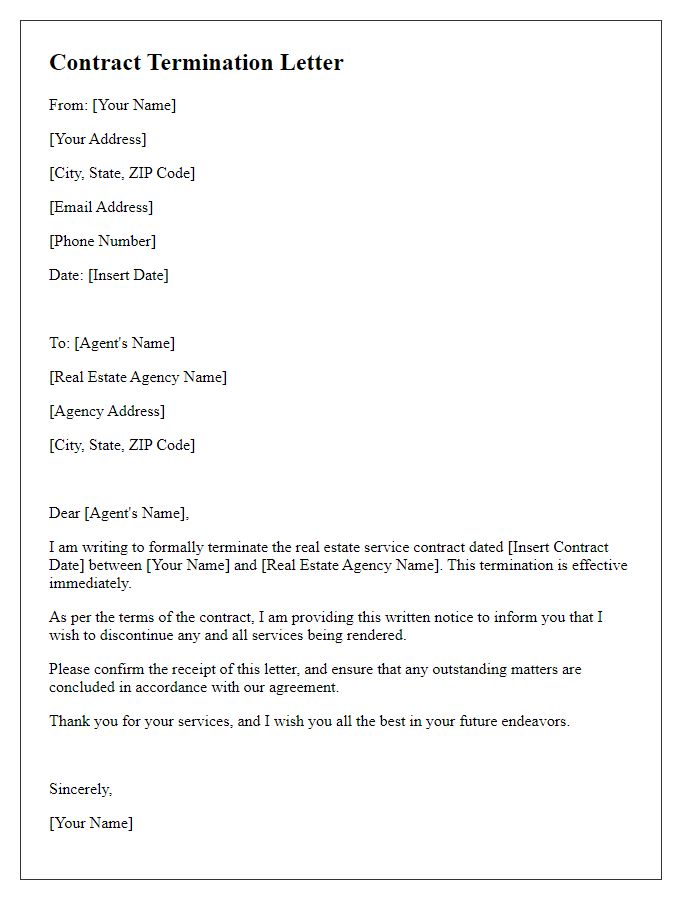
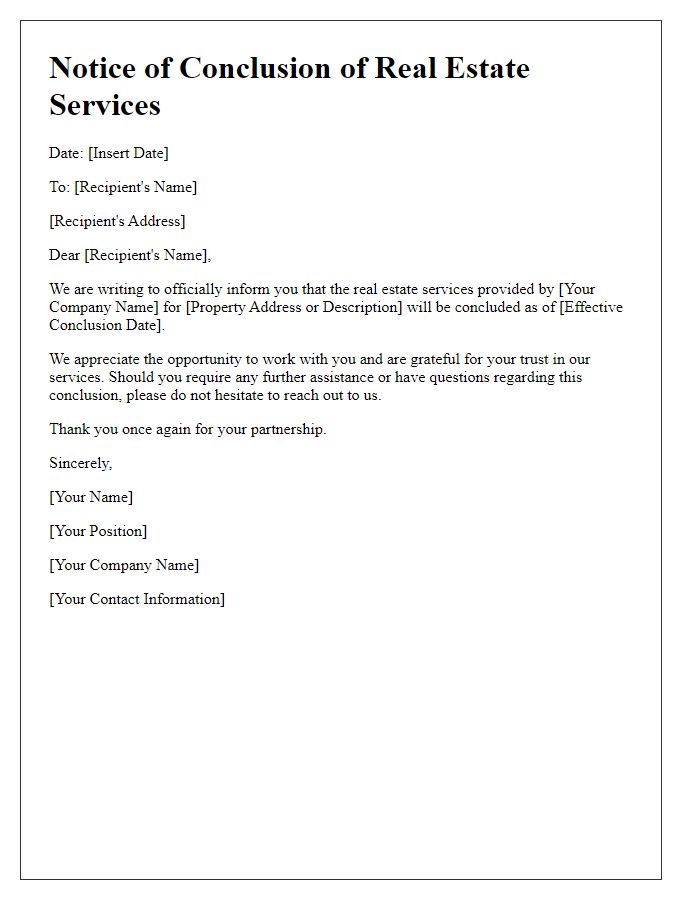
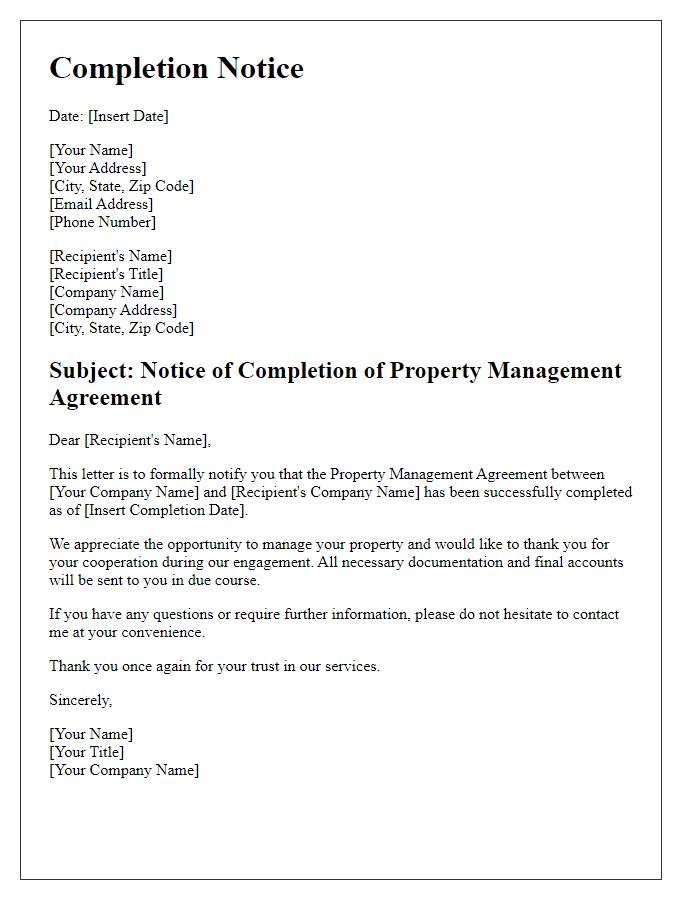
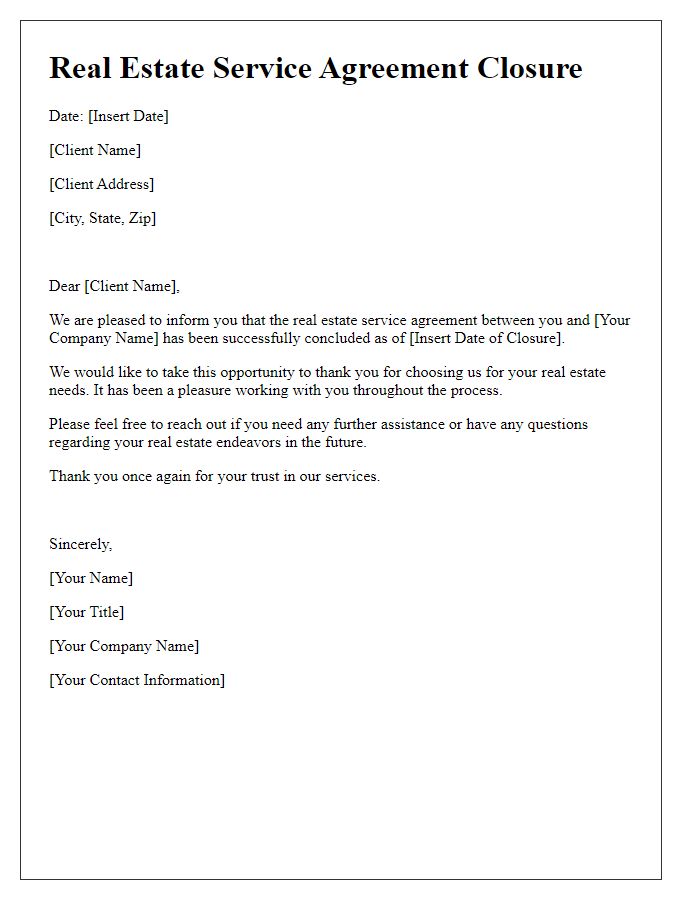
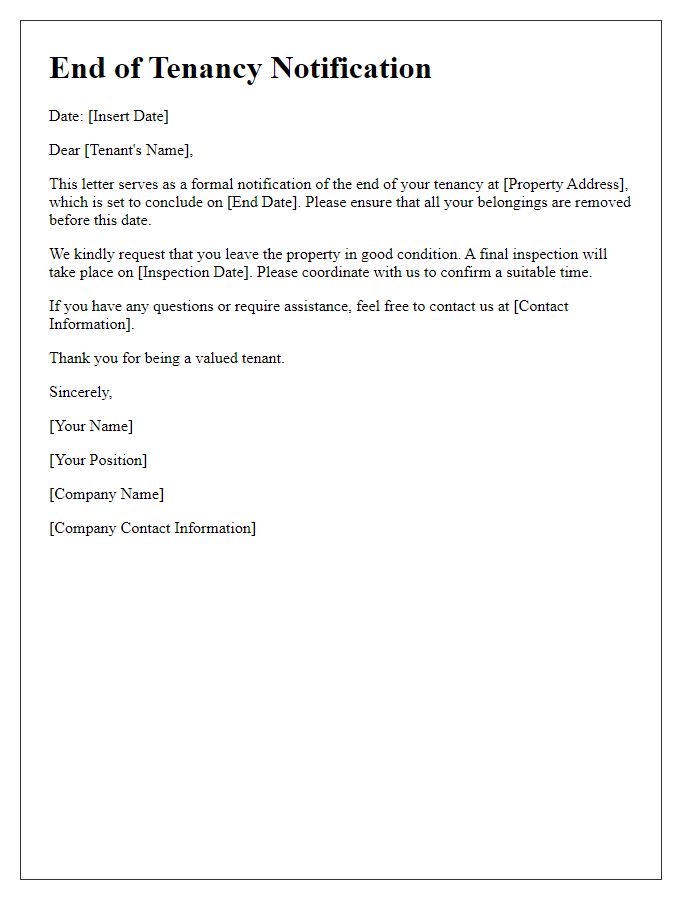
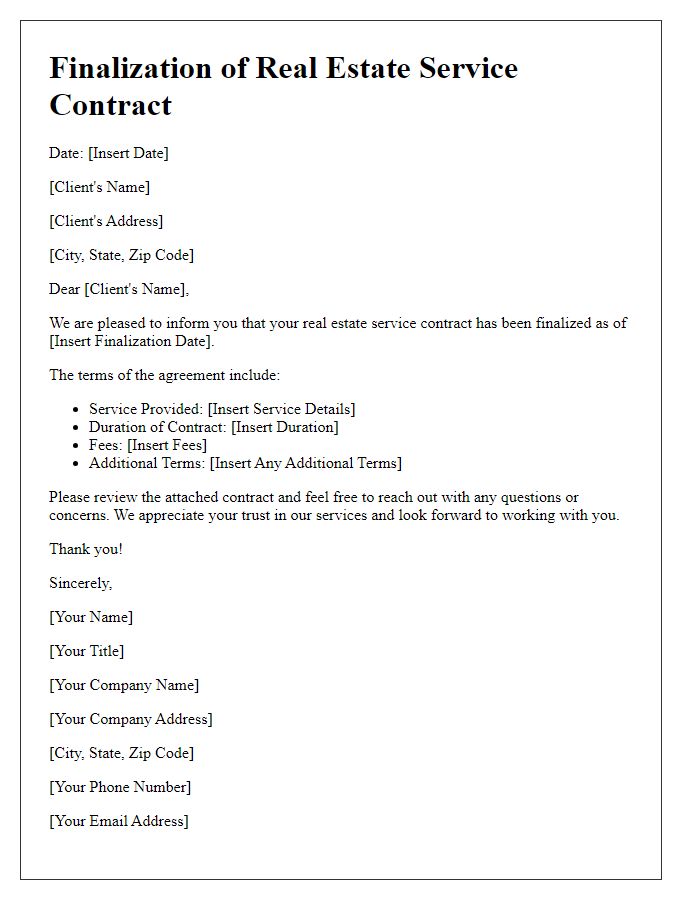
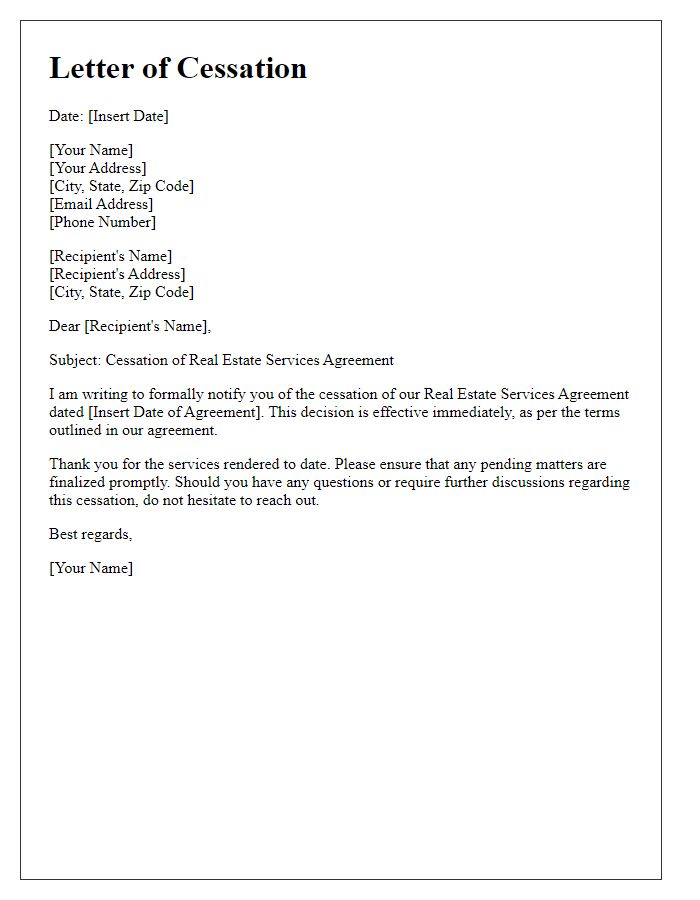
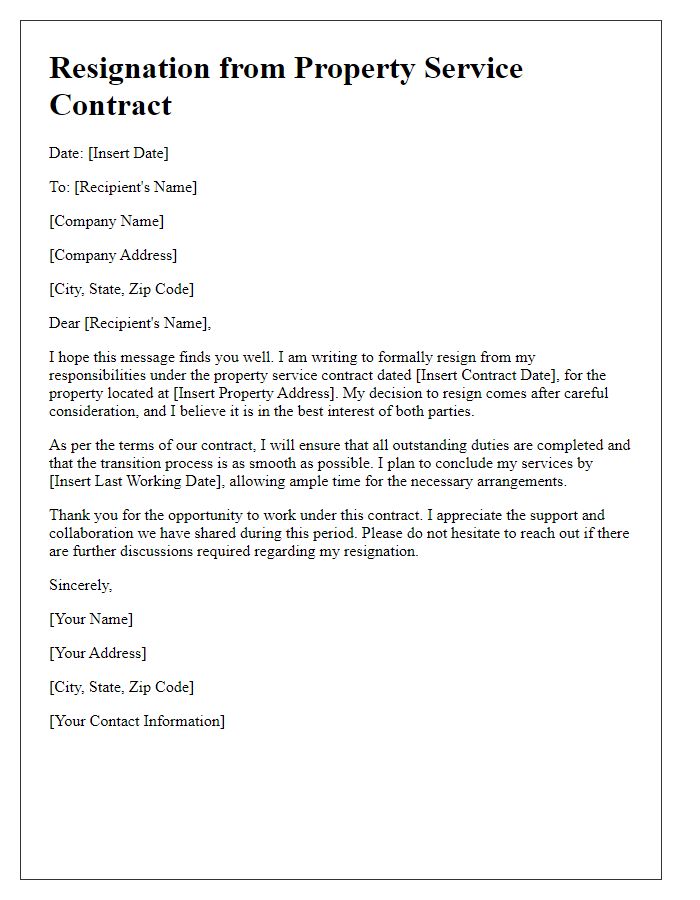
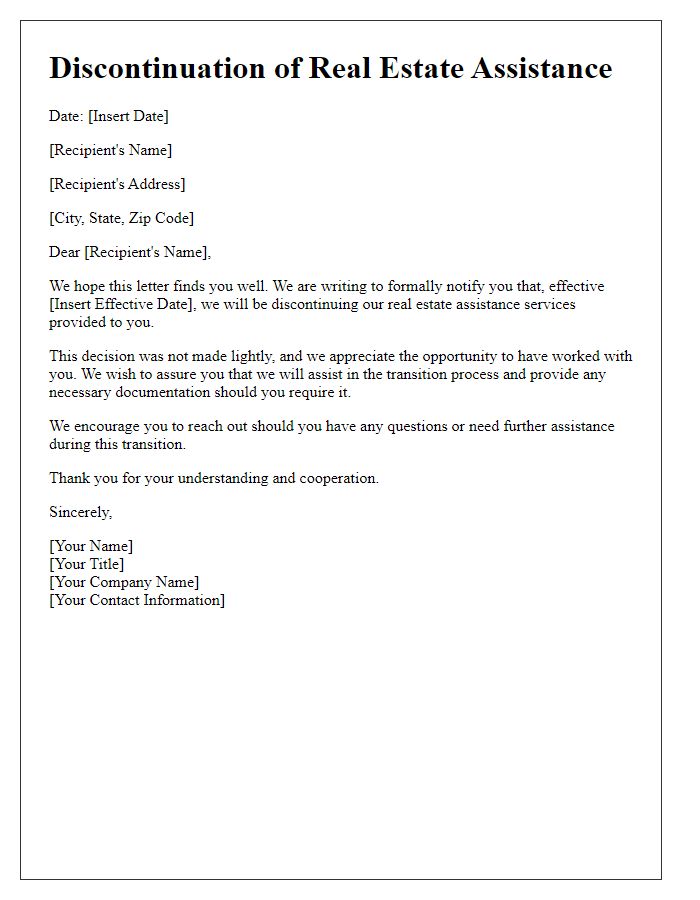
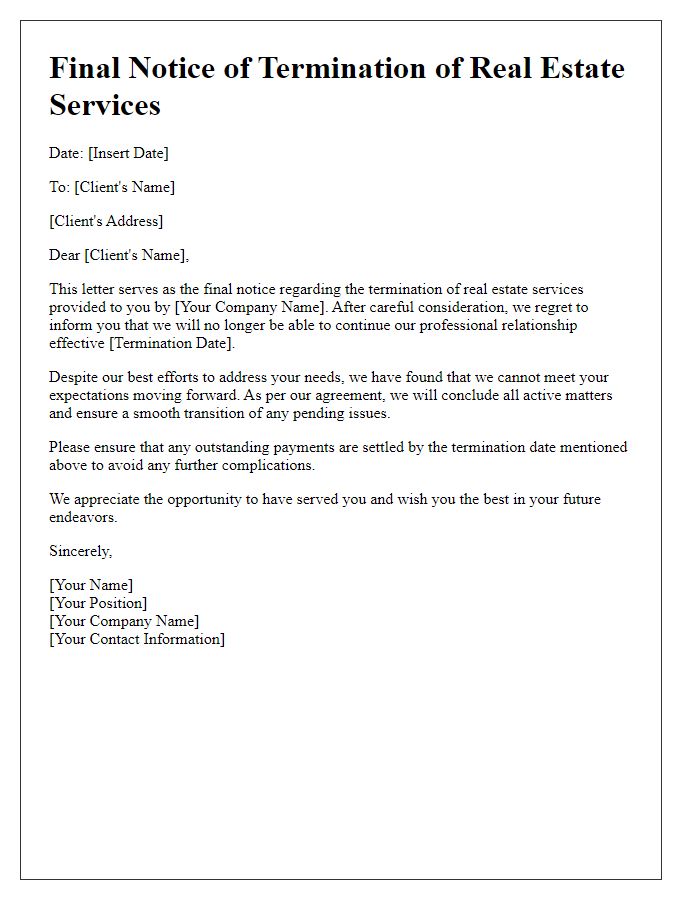


Comments